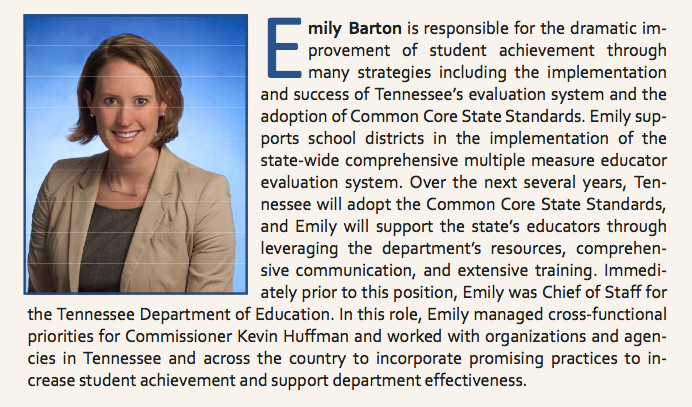As Tennessee schools prepare for Phase II of TNReady, the Department of Education has sent districts a memo outlining how they should handle students who refuse or attempt to “opt-out” of the test.
The general gist, according to reporting by Grace Tatter, is that you can’t opt-out or refuse. She reports:
District leaders received a memo last week instructing schools to “address student absences on testing days in the same manner as they would address a student’s failure to participate in any other mandatory activity at school (e.g. final exams) by applying the district’s or school’s attendance policies.”
The memo specifically notes:
“State and federal law also requires student participation in state assessments. In fact, these statutes specifically reference the expectation that all students enrolled in public schools in Tennessee will complete annual assessments.”
That’s not entirely true.
Federal law, even with the newly passed Every Student Succeeds Act (ESSA), requires states to administer annual assessments in grades 3-8 and at least once in high school.
But there’s a difference in requiring a state to administer and requiring a student to complete an assessment. Federal law requires administration of the test, but does not compel students to complete the exams.
Then, there is state law. The memo lacks specific references to Tennessee statute, but there are a few sections that relate to testing.
TCA 49-1-6 includes references to performance assessment and the Tennessee Value-Added Assessment System (TVAAS). This portion of state law says that annual assessments will be administered in grades 3-8 and then outlines the secondary school testing schedule. Here again, the law notes tests will be administered, but contains no compulsory language for students.
Then there’s TCA 49-6-60 dealing with proficiency testing. This section specifically details testing to be administered in grades 8, 10, and 11 as a strategy to promote college readiness. As these three tests are required for graduation, they are essentially mandated. Students who don’t take them won’t complete the graduation requirements.
What’s missing? Language that compels a student to take the test or requires a district to compel students to take the test. The memo says that “state and federal” statutes specifically reference the expectation that students will complete the assessment. True, TVAAS and other accountability measures are made valid by significant student participation in state tests. But, that alone doesn’t make them compulsory. Unless it’s one of the three proficiency tests specifically referenced in the graduation requirements section, there’s no language directly compelling students to participate in annual assessments.
It’s worth noting that while the Department of Education has said there would be penalties if districts refused to administer the TNReady tests, the memo says districts are not authorized to allow “opting-out” or test refusal. What it doesn’t say is what impact allowing opt-out would have on the district. If a district offers the test, and students refuse, then what?
Stay tuned as Phase II starts later this month.
For more on education politics and policy in Tennessee, follow @TNEdReport
